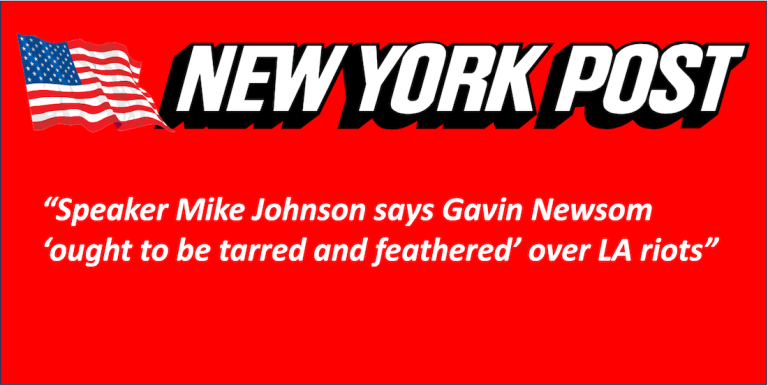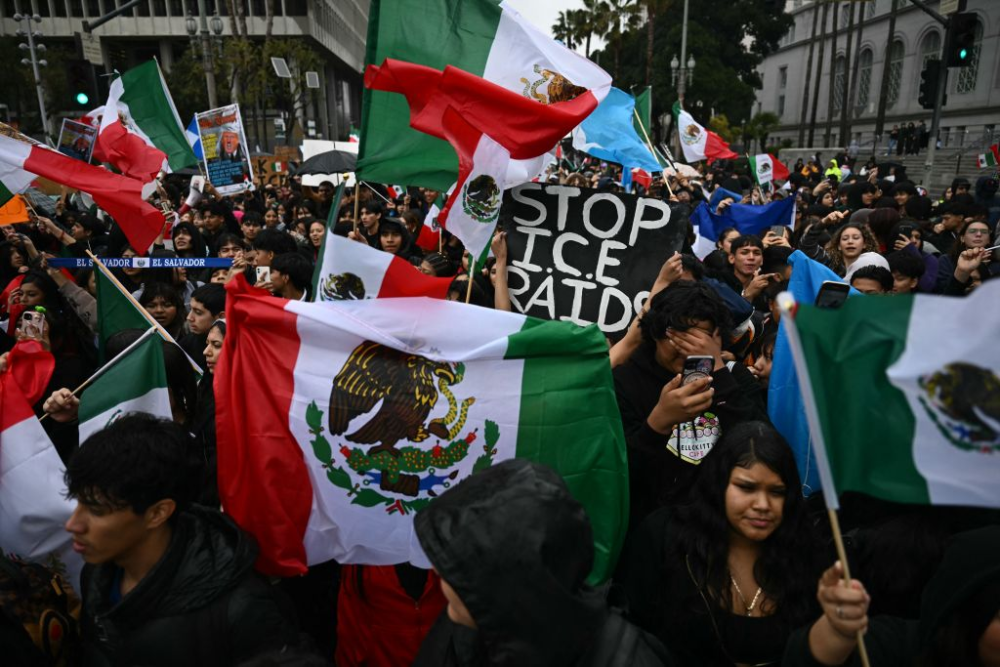
The Anti-Post challenges divisive narratives that exploit fear rather than foster understanding about complex immigration issues
By the Staff of The Stewardship Report: Let the truth-telling begin
New York, N.Y. – Recent inflammatory commentary in tabloid media demonstrates how easily complex immigration policy gets reduced to partisan talking points that serve no one—least of all the communities most affected by these policies. When pundits paint broad brushstrokes about “the worst migrants” or assign blame for civil unrest without examining root causes, they abandon journalistic responsibility in favor of sensationalism.
The current discourse around immigration enforcement and protests in cities like Los Angeles
reveals a troubling pattern: rather than examining the systemic issues that create immigration
challenges, some media outlets prefer to traffic in fear-mongering and oversimplification.
This approach not only misinforms the public but actively harms efforts to develop effective, humane immigration policy.
Understanding Complex Immigration Realities
Immigration to the United States involves millions of individuals with diverse circumstances, motivations, and legal statuses. Over 210,000 migrants arrived in New York City between early 2022 and summer 2024, pushing city resources to their limits as the historic gateway to the United States tried to find beds, food and financial aid for many who had crossed the southwest border. These numbers represent real people seeking safety, opportunity, and human dignity—not abstract political pawns in culture war narratives.
When media outlets characterize entire groups as “the worst,” they engage in dehumanization that has historically preceded society’s gravest injustices. Such language ignores the legal processes, asylum laws, and international obligations that govern how nations should treat people seeking refuge. It also overlooks the contributions that immigrants make to American communities, from essential labor to cultural enrichment to economic growth.

The Politics of Protest and Responsibility
Recent protests regarding immigration enforcement highlight legitimate concerns about civil rights and constitutional protections. Democratic lawmakers blame President Trump for violent L.A. protests against ICE operations, accusing the White House of “baiting” rioters while Republicans cite liberal anti-ICE rhetoric. Rather than reflexively assigning blame to one political party, responsible journalism should examine the complex factors that contribute to civil unrest.
Protests emerge from community frustration, perceived injustices, and systemic failures—not partisan orchestration. When law enforcement tactics appear heavy-handed or when federal policies disrupt established community relationships, peaceful demonstration represents a fundamental American right.
Gov. Gavin Newsom said California would sue the Trump administration over the deployment of troops to curb immigration protests in Los Angeles. Such legal challenges reflect legitimate concerns about federal overreach and constitutional boundaries.
Moving Beyond Inflammatory Rhetoric
Productive immigration discourse requires abandoning inflammatory characterizations and embracing nuanced analysis. This means recognizing that immigration reform involves balancing national security, economic needs, humanitarian obligations, and community impacts. It means acknowledging that border security and compassionate treatment of asylum seekers are not mutually exclusive goals.
Rather than demonizing political opponents or entire immigrant communities, responsible media should examine how current policies affect real people and communities. This includes investigating whether enforcement strategies actually improve public safety, how deportation policies impact families and communities, and what alternatives might better serve American interests and values.
The Role of Media in Democratic Discourse
When major media outlets prioritize inflammatory rhetoric over substantive analysis, they undermine democratic discourse and public understanding. Clickbait headlines about “the worst migrants” or conspiracy theories about orchestrated riots serve commercial interests while damaging social cohesion and informed citizenship.
Responsible journalism demands that complex issues receive proportionate coverage that respects both facts and human dignity. This means providing context about immigration law, examining the effectiveness of various policy approaches, and amplifying voices from affected communities rather than just political elites.
Building Constructive Solutions
America’s immigration challenges require constructive solutions based on evidence, not emotion. This means comprehensive immigration reform that addresses border security, visa processing, asylum procedures, and pathways to legal status. It means investing in immigration courts, improving detention conditions, and developing integration programs that help newcomers contribute to their communities.
Most importantly, it means rejecting the false choice between border security and humanitarian values. Democratic societies can maintain sovereign borders while treating all people with dignity and respect. They can enforce immigration laws while ensuring due process and constitutional protections.
Let this be your act of resistance — not through yelling, but through clarity. Not with conspiracy, but with conscience.
Summary for audio
Recent inflammatory immigration commentary reduces complex policy issues to partisan talking points, characterizing entire groups as threatening while assigning blame for protests without examining root causes. Productive discourse requires abandoning dehumanizing rhetoric, recognizing immigration’s complexity, respecting civil rights, and developing evidence-based solutions that balance security with humanitarian values. Responsible journalism should examine real impacts on communities rather than trafficking in fear-mongering sensationalism that undermines democratic discourse.